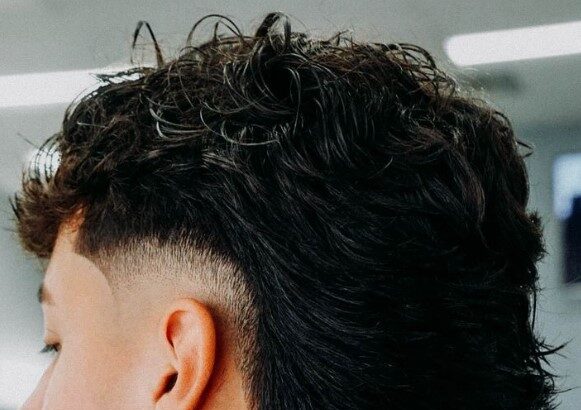Do you often wonder, “Why is my hair so oily?” You’re not alone. Many people deal with greasy hair, even after regular washing. It can make your hair look flat and lifeless, but the good news is that there are simple ways to manage it. Whether you have straight, curly, or thick hair, there are some common reasons for oily hair and solutions to tackle it effectively.
What Causes Oily Hair?
Your scalp naturally produces sebum, an oil that keeps your hair moisturized and healthy. But when it produces too much, your hair can become greasy. There are a few reasons why your hair might be oilier than you’d like:
- Genetics: Some people naturally produce more oil due to their genetic makeup.
- Hormonal Changes: Hormonal shifts, like those that happen during puberty or pregnancy, can increase oil production.
- Hair Type: If you have fine or straight hair, oil can easily travel down the hair shaft, making it appear greasy faster than curly or coarse hair.
If you sport a taper fade, you might find it even more noticeable when your scalp produces too much oil because short, neat styles can show grease more clearly.
Common Mistakes That Make Hair Oilier
Sometimes, oily hair can be the result of habits or hair care practices that you might not even be aware of. Here are some mistakes that can lead to greasy locks:
Washing Too Often
It might seem like the more you wash, the cleaner your hair will be, but that’s not necessarily true. Over-washing strips your scalp of its natural oils, prompting it to produce even more oil in an attempt to rehydrate. Try washing your hair every two to three days instead of daily.
Using the Wrong Products
Heavy, moisturizing products can weigh down your hair and make it greasier. Look for lightweight shampoos and conditioners designed for oily hair, and avoid heavy creams or gels. Clarifying shampoos are great for removing excess oil and buildup.
Touching Your Hair Too Much
Constantly running your fingers through your hair or brushing it can transfer oils from your scalp and hands to your hair, making it greasy. Try to keep touching your hair to a minimum throughout the day.
Easy Solutions for Greasy Hair
If you’re tired of dealing with oily hair, there are a few simple ways to keep it under control.
Adjust Your Washing Routine
Cutting back on washing can help regulate your scalp’s oil production. Aim to wash your hair every two to three days, and use a shampoo formulated for oily hair. When you do wash, focus on massaging your scalp gently to remove excess oil without overstimulating your sebaceous glands.
Try Dry Shampoo
Dry shampoo is an excellent option for refreshing your hair between washes. It absorbs excess oil, leaving your hair looking fresh without the need for water. Spray it at the roots, let it sit for a few minutes, then brush through your hair to distribute the product.
Rinse With Cold Water
Hot water can cause your scalp to produce more oil. Instead, rinse your hair with cool or lukewarm water, which helps close the hair cuticles and reduce oil production. This also leaves your hair shinier and healthier overall.
Avoid Heavy Styling Products
Heavy creams, gels, and styling products can add to the oil buildup. Opt for lightweight, oil-free products instead, and focus on applying them to the lengths of your hair rather than the roots.
Visit: magazinesus.com
Conclusion
Managing oily hair can seem like a constant struggle, but with the right adjustments to your routine, you can keep your locks looking fresh and clean. Whether it’s tweaking how often you wash your hair or using products like dry shampoo, there are simple ways to reduce excess oil. Remember that hair types and needs vary, so finding what works best for you might take a little trial and error.
For more expert advice and tips on managing greasy hair and maintaining great hairstyles, visit taperfade.co.uk for the latest insights on hair care solutions.







